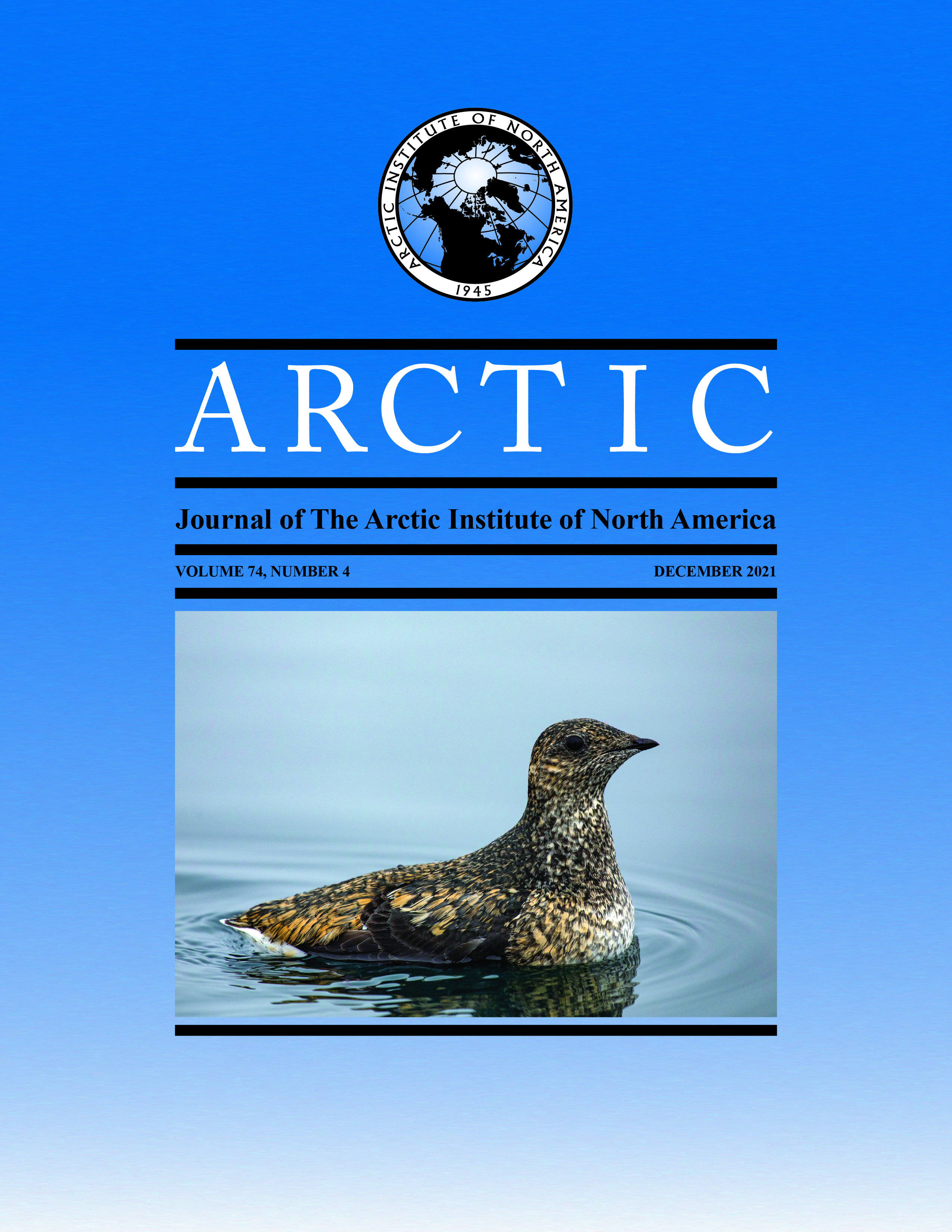A Caribou Decline Foreshadowed by Inuit in the Central Canadian Arctic: A Retrospective Analysis
DOI:
https://doi.org/10.14430/arctic73826Ключевые слова:
archived interviews; caribou conservation; Dolphin and Union caribou; Ekaluktutiak; Kugluktuk; participatory mapping; place-based knowledge; Rangifer; traditional knowledgeАннотация
The Dolphin and Union (DU) caribou herd (Rangifer tarandus groenlandicus x pearyi), locally referred to as Island caribou, is a unique and at-risk ecotype of caribou that ranges on Victoria Island and the adjacent mainland in the central Canadian Arctic. To facilitate the incorporation of traditional knowledge (TK) and better inform the required species recovery plan, we analyzed an archived set of TK interviews done in Ekaluktutiak and Kugluktuk, Nunavut, in 2003. The overarching theme throughout the interviews was that the DU caribou were dynamic, constantly adapting to the changing environment around them. Accounts provided previously unexplored connections between temporal and spatial trends in DU caribou distribution, population, ecology, and disease syndromes. Findings of fewer animals, range shift, and increased observations of disease in the late 1990s and early 2000s suggest that early signs of the declines that have resulted in the herd being reassessed as endangered today were already apparent to Kugluktukmiut in 2003. In contrast, Ekaluktutiakmiut were seeing a stable population. Shifts in caribou range and consequently harvesting ranges were described by both communities, but more evident in Kugluktuk. When combined, the differing accounts of the two communities provided a deeper understanding of caribou ecology and trends across seasons, years, and a broad spatial range. Community differences demonstrate the cruciality of considering unique place-based perspectives and the importance of mobilizing TK from communities and knowledge keepers throughout the caribou range for a herd-level understanding. This study highlights the importance of timely analyses and reporting on TK studies to ensure a nimble conservation response in a rapidly changing environment.
Загрузки
Опубликован
Выпуск
Раздел
Лицензия
Copyright (c) 2021 ARCTIC

Это произведение доступно по лицензии Creative Commons «Attribution» («Атрибуция») 4.0 Всемирная.


